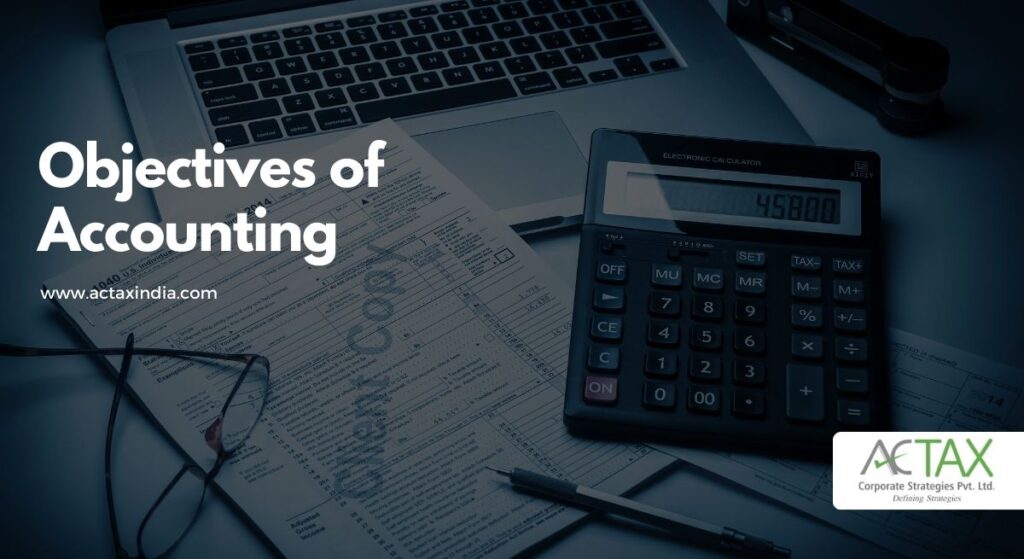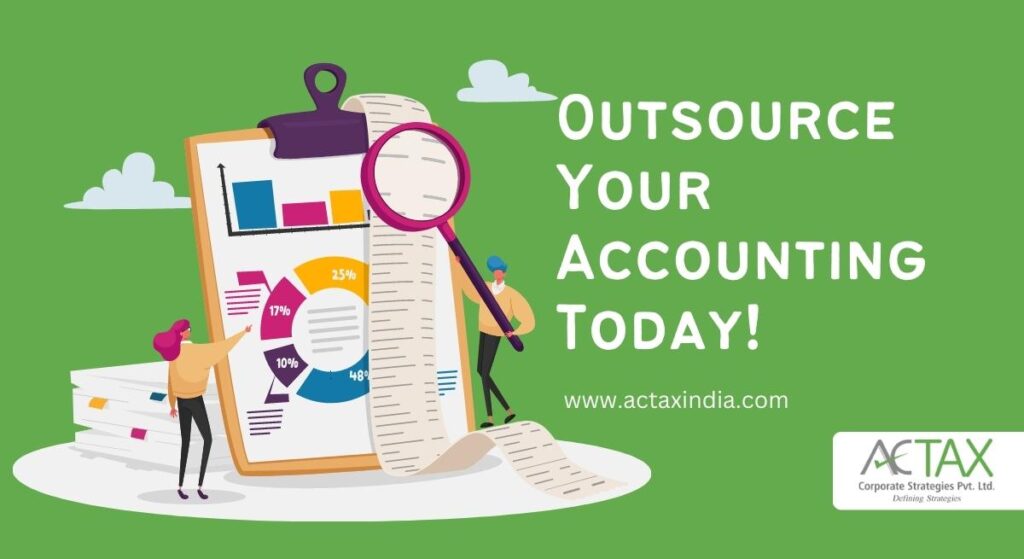When you start your business, you’ll start exploring the importance of Accounting. For a small business it is vital to maintain healthy financial records to make accurate decisions.
Accounting is a fundamental aspect of any business, serving many essential objectives and functions. This financial discipline not only helps in maintaining accurate records but also plays a pivotal role in decision-making and compliance. The top 10 objectives of accounting encompass various aspects, from ensuring the reliability of financial statements to providing vital information for sound management.
It facilitates strategic planning, assesses the financial health of an organization, and supports tax compliance. In this article, we’ll delve into these objectives and explore how accounting functions serve the needs of businesses, regulators, investors, and stakeholders alike.
Table of Contents
Importance of Accounting Objectives for A Small Business!
Accounting objectives are of paramount importance in the world of business and finance. They serve as guiding principles that underpin the entire accounting process, and they play a crucial role in ensuring the reliability, transparency, and integrity of financial information.

Key Reasons – Why the Objectives of Accounting are Vital?
1. Reliability of Financial Statements
One of the primary objectives of accounting is to provide reliable financial information. This is essential for stakeholders like investors, creditors, and management to make informed decisions. Reliable accounting data builds trust in the financial statements, which is vital for investment and lending activities.
2. Transparency in Accounting
Accounting objectives emphasize the need for transparency in financial reporting. This means that financial statements should clearly and accurately represent the economic reality of an organization. Transparency helps stakeholders understand an entity’s financial position and performance, reducing the risk of financial mismanagement or fraud.
3. Accountability of Financial Activities
Accounting objectives hold businesses and individuals accountable for their financial activities. When accounting standards and principles are followed, it becomes easier to trace and understand how economic transactions are recorded and reported. This accountability is crucial for corporate governance and regulatory compliance.
4. Accurate Decision-Making with Accounting
Accounting objectives contribute to better decision-making. Whether it’s management deciding on investment opportunities or shareholders voting on important matters, accurate financial information is essential. It enables stakeholders to assess an organization’s financial health and make strategic choices accordingly.
5. Excellency in Risk Management
Practical accounting objectives include assessing and managing financial risks. By tracking and analyzing financial data, organizations can identify potential risks and take steps to mitigate them. This proactive approach to risk management is vital for long-term stability.
6. Maintain Compliance with the Law
Accounting objectives often align with legal and regulatory requirements. Compliance with accounting standards and principles ensures that an organization adheres to the law, reducing the risk of legal and financial penalties. Observation is crucial for public companies and organizations subject to external audits.
7. Better Investor Confidence
For small businesses seeking external financing or investors, accounting objectives are a way to instill confidence. When an organization adheres to these objectives, it signals to potential investors that their money will be managed transparently and with integrity. You can showcase your capability in maintaining proper accounts, which builds more credibility on your financial statements.
8. Performance Assessment
By applying accounting objectives, organizations can measure and assess their financial performance. This includes profitability, liquidity, solvency, and efficiency. These metrics help management understand where improvements are needed and where the company excels.
9. Tax Compliance
Accounting objectives also play a crucial role in ensuring businesses meet their tax obligations. By maintaining accurate financial records, organizations can correctly report their income and deductions, reducing the risk of tax-related issues.
10. Build Stakeholder Trust with Accounting
Ultimately, accounting objectives contribute to building and maintaining trust among stakeholders. When businesses adhere to these objectives, they create an environment of trust and confidence in their financial operations.
Do You Want Actax Experts To Do Accounting?
10 Top Objectives of Accounting That Helps Small Businesses!

1. Identification & Recording Of Transactions – Key Objective Of Accounting
Identifying and recording transactions in accounting is fundamental to the process of financial record-keeping. It involves recognizing and documenting all financial events, whether they involve the exchange of money or not, to provide a comprehensive and accurate picture of an entity’s economic activities. By systematically recording transactions, accounting enables businesses to maintain transparency, assess financial performance, and meet legal and regulatory requirements. This objective ensures that every economic event, no matter how small, is captured and accounted for, forming the basis for financial statements and informed decision-making by stakeholders, from management to investors and regulators.
2. Preparing Profit And Loss Statements – A Significant Accounting Objective
Preparing a Profit and Loss (P&L) statement is the crucial objective of accounting. This financial statement summarizes a company’s revenues, costs, and expenses over a specific period, typically a fiscal quarter or year. The P&L statement helps assess a company’s financial performance by revealing whether it’s making a profit or incurring losses. It’s crucial for management, investors, and stakeholders as it aids in decision-making, financial planning, and identifying areas for improvement. Additionally, it’s a requirement for regulatory compliance and taxation purposes. By preparing a P&L statement, accounting helps measure a company’s profitability and overall financial health. Understand the Critical Problems with Small Business Accounting
3. Preparing Balance Sheet
Preparing a Balance Sheet is one of the fundamental objectives of accounting. The Balance Sheet is a financial statement that provides a snapshot of a company’s financial position at a specific time, typically at the end of an accounting period. It lists a company’s assets, liabilities, and shareholders’ equity, ensuring the accounting equation (Assets = Liabilities + Equity) is balanced. The Balance Sheet helps stakeholders assess the company’s solvency, liquidity, and overall financial health. It’s a crucial tool for investors, creditors, and management to make informed decisions, evaluate risk, and understand the organization’s financial stability. The Balance Sheet is an essential part of financial reporting and compliance.
4. Keeping Records Of Cash Transactions
An important objective of accounting is to maintain accurate records of cash transactions. This involves systematically recording all cash receipts and cash disbursements within an organization. Tracking cash flows is crucial for several reasons. It helps ensure financial transparency and accountability, allowing businesses to monitor their liquidity, make timely payments, and avoid cash shortages. These records also serve as a critical audit trail, helping with financial reporting and compliance. Furthermore, maintaining accurate cash records supports efficient budgeting, cash management, and decision-making, as it provides a clear picture of an organization’s cash position and the ability to meet its short-term financial obligations.
5. Evaluate And Control Assets
Evaluating and controlling assets and liabilities is a fundamental objective of accounting. This involves regularly assessing the financial health of an organization by monitoring its assets (such as cash, inventory, and property) and liabilities (including loans, accounts payable, and other obligations). By doing so, businesses can ensure they have an accurate understanding of their financial position. This objective enables them to take measures to manage debt, optimize asset utilization, and maintain solvency. It also plays a crucial role in preventing mismanagement or fraudulent activities, promoting transparency, and supporting effective financial decision-making to ensure long-term sustainability.
6. Preventing Money Defalcation And Cost
Preventing money defalcation and cost control is a vital objective of accounting. It involves implementing robust financial controls and safeguards to minimize the risk of theft, embezzlement, or misappropriation of funds within an organization. Additionally, cost control aims to optimize expenses and ensure resources are used efficiently. By adhering to this objective, businesses can safeguard their financial integrity, protect their assets, and maximize profitability. It also fosters a culture of fiscal responsibility and accountability, contributing to the overall stability and success of the organization.
7. Detection And Prevention Of Errors
The objective of detecting and preventing errors in accounting is to ensure the accuracy and reliability of financial information. Accounting systems are designed to identify and rectify mistakes, whether they result from data entry errors, miscalculations, or other factors. By doing so, businesses can maintain the integrity of their financial records, make informed decisions, and comply with legal and regulatory requirements. Detection and prevention of errors also prevent fraud, mismanagement, and financial irregularities. This objective underscores the importance of meticulous record-keeping and the continuous improvement of accounting processes to minimize inaccuracies and their potential consequences.
8. Detection And Prevention Of Fraudulence
Detecting and preventing accounting fraud is vital for safeguarding a company’s assets and maintaining financial integrity. Accounting systems are designed to identify unusual or suspicious transactions and behaviors that may indicate fraud. By implementing internal controls, audits, and monitoring mechanisms, organizations can deter fraudulent activities, protecting themselves from potential financial losses and reputational damage. Detecting and preventing fraudulence is essential for maintaining trust with stakeholders, investors, and regulatory bodies, as well as ensuring compliance with legal and ethical standards in financial reporting and business operations. This objective highlights the critical role accounting plays in upholding transparency and accountability within an organization.
9. Property And Cost Audit
Property and cost audit, as an objective of accounting, involves a comprehensive assessment of an organization’s physical and financial assets. This helps ensure that assets are used efficiently, costs are controlled, and resources are managed effectively. Through periodic audits, accountants can verify the existence, condition, and value of physical assets, such as machinery or real estate. Simultaneously, they analyze cost structures, identifying areas for cost reduction and efficiency improvements. Property and cost audits are crucial in enhancing an organization’s profitability and resource allocation, making them an essential component of the objectives of accounting to optimize financial performance and overall business sustainability.
10. Management, Income Tax And Social Audit
Management, income tax, and social audit are essential objectives of accounting. Management audit involves a systematic review of an organization’s management processes, helping identify strengths and areas that need improvement. Income tax audit ensures compliance with tax laws and regulations, minimizing tax liabilities while staying within legal boundaries. Social audit evaluates a company’s social and environmental responsibilities and contributions to the community. These objectives of accounting go beyond financial aspects, focusing on effective management, legal compliance, and corporate social responsibility. By addressing these objectives, accounting helps organizations optimize their operations, fulfill their fiscal obligations, and contribute positively to society.
Conclusion
In conclusion, accounting objectives play a crucial role in ensuring the financial health and integrity of an organization. They encompass a broad spectrum of functions, from identifying and recording transactions to preventing errors and fraud, as well as evaluating assets and liabilities.
Accounting also extends its purview to income tax compliance, social responsibility, and property audits. These objectives of accounting collectively facilitate effective management, responsible financial reporting, and legal compliance, which are essential for any business or organization.
Accounting is not merely about numbers; it’s a fundamental tool that helps in making informed decisions, maintaining transparency, and ultimately contributing to the success and sustainability of an enterprise.







Pingback: 10 Benefits of Outsourcing Accounting Services to India | Actax India